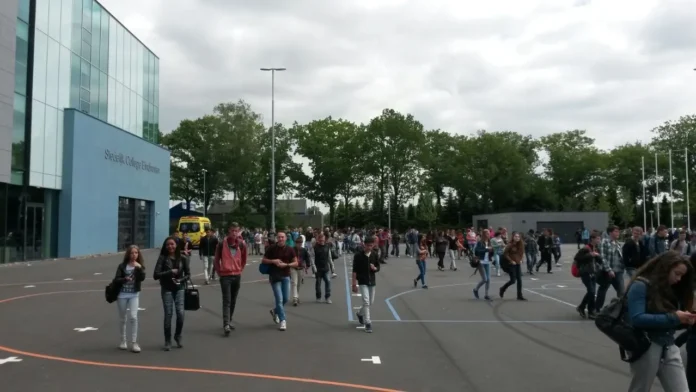Eindhoven is unable to offer children of expats, refugees and migrant workers who have settled here the courses they need on a short term. There is a waiting list of 75 teenagers for the international transition class, which is a preparation for regular secondary education. The children therefore have to wait months before they can go to school.
There are now 530 students in the ISK (international transition class), at the Oude Bosschebaan and Broodberglaan locations in Eindhoven. Until recently there were about 250. That is more than double. Seventy-five students are therefore still waiting for a place on the course they need.
Transition class
An ISK is a school that children between the ages of 12 and 16 attend if they come from abroad and do not yet speak Dutch. It is often thought that these are mainly children of knowledge workers, such as engineers who work at one of the many technology companies in the region. “But”, says program director Willy Evers of the Stedelijk College, “they can really have any background story. From children of knowledge workers to migrant workers to refugees.” In two years, the children are prepared to move on to regular education.
The enormous increase is striking and Evers expects this trend to continue. “The flow of non-Dutch speakers is really extremely large; it has really exploded in a short time. This is not a short-term phenomenon; this will be the situation for the longer term”.
Children are at home
Of the 75 teenagers on the waiting list, about 40 already live in the Netherlands and are now at home. “We are in talks with the municipality about opening a third location,” says Evers. They already have that location in mind, but there are still many uncertainties. The intention is that there will be a solution from May. Some 250 to 300 students should be able to attend classes at the new location.
Not only the lack of space causes problems. It also requires a lot of teachers with specific skills. Evers: “Last year we already recruited 60 new colleagues for this group, yet this does not mean we can accomodate more students.”
Influx
The growth of the Brainport region means that more and more children are coming to live here who need to go to school. Meine Stoker, who is responsible for international education in the city, has also noticed this. “We see the group of expats growing, but also other groups such as labour migrants and, for example, children who have fled from Ukraine.”
The influx of this group will not stop for the time being. On the contrary, enormous growth must be taken into account, says Stoker. “Now is the time to prepare for the situation four or five years into the future” Schools do communicate with eachother about possible solutions. “We all face the same situations. Everyone sees the need and everyone wants to work on finding solutions.”
Source: Studio040
For Eindhoven News: Lila Mehrez
















